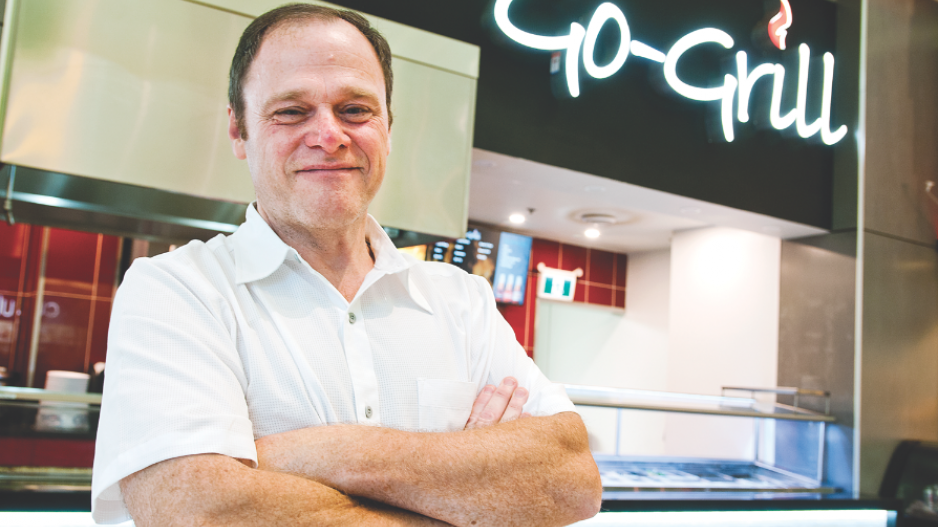Ian Jenkins and his wife, Deborah Jenkins, say they lost $750,000 when they walked away from their Go-Grill franchise at Central City Shopping Centre and chose not to open their planned second franchise at Vancouver International Airport.
There was a long list of problems during the four months that they operated their Go-Grill in Surrey before closing it at the end of April.
Jenkins maintains that he didn’t get all the equipment that he paid for and was promised. He also had to battle health inspectors, who allegedly shut him down twice – once because a vent did not work and once because fridges did not work.
As well, sales were far below what Jenkins said he was told he should expect. He claims he was losing about $11,000 per month.
“It’s been devastating for my family,” he said. “It’s been horrible.”
Jenkins is lobbying the B.C. government to draft a franchise act to protect entrepreneurs who buy franchises and level the playing field when disputes arise between them and deep-pocketed franchisors.
Ministry of Justice staff is reviewing public feedback it collected last year when government sought opinions on the proposed law and ministry staff is “in the process of preparing recommendations for next steps,” according to a statement the ministry sent to Business in Vancouver.
A franchise act would require franchisors to reveal such details as whether they’ve ever been sued – either corporately or personally as director.
Proposed legislation would regulate the sale of franchises and stipulate what disclosure is required before a sale is completed.
Jenkins and the Go-Grill franchisor, Fresh & Healthy Brands Canada Ltd. (FHB) could not work out their dispute outside court, so he is suing the company and its president, Chad Parker, among others, for allegedly making false representations when he and his wife bought two Go-Grill franchises.
He said he and his wife lost about $350,000 at their Go-Grill in Surrey and $400,000 at their unopened location at the airport, which had more expensive build-out costs because it was behind security.
But even if Jenkins can prove that FHB made representations that were not true, he might not be able to rescind his franchise agreement, said his lawyer, John Fiddick, who is a director at Whitelaw Twining.
“An awful lot of businesses are being operated with a franchise model, so I think we need to codify things like disclosure obligations and rescission rights.”
In the five provinces that have franchise acts, the legislation outlines what franchisors must reveal and what the penalty is for either failing to disclose required details or disclosing inaccurate information.
“We strongly deny all allegations they have made,” Parker told BIV in an email. He is countersuing the Jenkinses for damages because they breached the franchise agreement by closing.
Opposition to a franchise act comes from the Canadian Franchise Association (CFA). Its CEO, Lorraine McLachlan, told BIV that a franchise act is unnecessary.
“CFA has a code of ethics for our members that does require disclosure,” she said. “We fully support disclosure, but enshrining it in legislation that can have penalties that are disproportionate is not in the best interest of the franchisee or the franchisor.”•




